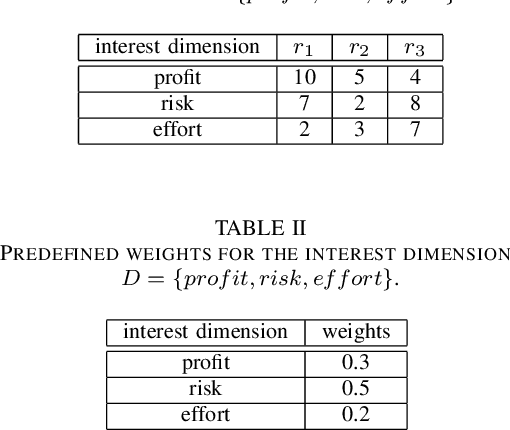Müslüm Atas
Configuring Multiple Instances with Multi-Configuration
Sep 20, 2021Abstract:Configuration is a successful application area of Artificial Intelligence. In the majority of the cases, configuration systems focus on configuring one solution (configuration) that satisfies the preferences of a single user or a group of users. In this paper, we introduce a new configuration approach - multi-configuration - that focuses on scenarios where the outcome of a configuration process is a set of configurations. Example applications thereof are the configuration of personalized exams for individual students, the configuration of project teams, reviewer-to-paper assignment, and hotel room assignments including individualized city trips for tourist groups. For multi-configuration scenarios, we exemplify a constraint satisfaction problem representation in the context of configuring exams. The paper is concluded with a discussion of open issues for future work.
Towards Utility-based Prioritization of Requirements in Open Source Environments
Feb 17, 2021



Abstract:Requirements Engineering in open source projects such as Eclipse faces the challenge of having to prioritize requirements for individual contributors in a more or less unobtrusive fashion. In contrast to conventional industrial software development projects, contributors in open source platforms can decide on their own which requirements to implement next. In this context, the main role of prioritization is to support contributors in figuring out the most relevant and interesting requirements to be implemented next and thus avoid time-consuming and inefficient search processes. In this paper, we show how utility-based prioritization approaches can be used to support contributors in conventional as well as in open source Requirements Engineering scenarios. As an example of an open source environment, we use Bugzilla. In this context, we also show how dependencies can be taken into account in utility-based prioritization processes.
 Add to Chrome
Add to Chrome Add to Firefox
Add to Firefox Add to Edge
Add to Edge